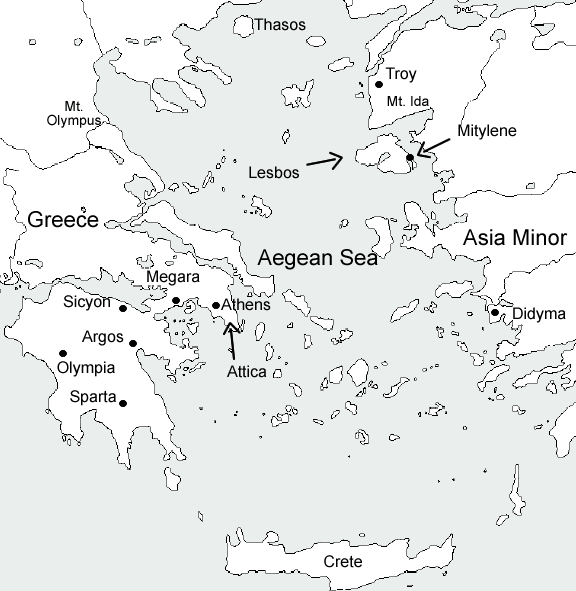Web Links to Readings
- Read the "Images: Abduction / Seduction of Helen" section of the Bingdev homepage for this course.
- Read the dedicated Bingdev webpage with peithō/Peitho readings.
SWA 4 Prompt
You'll be looking at evidence for persuasion-Persuasion as a goddess worshipped in temples, as a mythical personage, and as an abstraction or action. You'll be seeing persuasion itself in isolation and in connection with other concepts / personages, and in various sorts of contexts.
Evidently, persuasion was something "real" for ancient Greeks — real enough for them, among other things, to worship it as a deity. So, . . .
Are there connections between these various versions, these varied manifestions, of peithō-"persuasion" reified (rendered not as abstract but as concretely real) and / or personified (rendered not as an inert thing but as a living person)? If so, what?

Study Guide Proper
These are challenging readings, and will need to be gone over carefully. (But it's actually a short assignment.) The idea will be to build up a knowledge base in Peitho (goddess)-peithō (thing) as a cultural reality. As such, it provides crucial context for approaching peithō as a political reality.
Background: Peitho / peithṓ, peíthō
The Greek noun peithṓ means "persuasion"; grammatically, it is feminine gender (female persons are typically, though not always, designated by words in the feminine grammatical gender).
- That means that peithṓ, if treated as if a person (i.e., personified), will be a woman: the goddess / nymph / spirit Peitho. But is persuasion inevitably feminine in its broader associations/implications?
The verb peíthō means "to persuade."
Political Aphrodite?
Aphrodite is the goddess of love, sex, and marriage. But her list of duties seems to have extended beyond that, as a passage from Pausanias, a description of the foundation of the small temple of Aphrodite Pandemos at Athens, attests.
That passage projects the foundation of the temple way back into the city's mythical past. But Aphrodite Pandemos, the "Common" Aphrodite, or else Aphrodite "Of all the People," arguably held political significance starting maybe in the 300s BCE, maybe earlier.
The other passages, one from Xenophon's Symposium, another from Nicander, also talk about Aphrodite Pandemos, but assign to her a very different significance.
STUDY (not SWA) QUESTIONS:
- Why politicize this sexual goddess? Why sexualize this political goddess?
- Do these two views of the goddess present us with any kind of a contradiction? Could there be connections?
- What can they tell us about attitudes to persuasion? About its possible roles under a democracy?